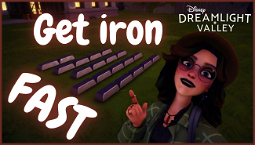Support the WGA and SAG-AFTRA strike
Are you wondering how to support the WGA and SAG-AFTRA strike? These unions are on strike for various reasons, including concerns over residual pay, pay increases, the use of AI to replace workers, and expectations regarding free writing work and self-tape auditions.
While the issues are varied and complex, there are many individuals participating in the strike who are members of both unions. The best way to help those affected is to support the Entertainment Community Fund, which provides assistance to struggling workers in the entertainment industry, including those behind the scenes.
What is the WGA and SAG-AFTRA strike about?
The big news is that the WGA and SAG-AFTRA are on strike. Studios have refused to negotiate with the writers, and the actors have been forced to walk the picket line. These unions represent many different workers in the industry, including writers, actors, and voice actors.
The strike is also affecting streaming services, as many writers are responsible for creating original content for these platforms. If you’ve been wondering what the WGA and SAG-AFTRA strike is about, and what you can do to help, read on to find out more.
How to support the WGA and SAG-AFTRA strike
The best way to support those affected by the strike is to donate to the Entertainment Community Fund. The ECF is a longstanding organization that supports workers from various disciplines in the entertainment industry. From writers, to actors, to artisans, the ECF provides assistance to anybody in the industry who is struggling and going through a difficult time.
By donating money, you’re directly helping individuals whose jobs have been impacted by the studios’ refusal to negotiate. While you may have a lot of questions about the strike, cancelling subscriptions to streaming services or not going to the movies is a personal choice. It may have an impact on the studios’ bottom line, but it doesn’t directly support the workers who are going without pay during the strike.
Strikes are a last resort, and the decision to strike was not sudden. Contracts expired, and negotiations with the studio executives have been delayed and postponed. The offers made by the studios were not reasonable – changing writing jobs into day rates, and paying extras for one day’s work while owning their likeness indefinitely.
Most WGA and SAG members aren’t wealthy. Many struggle to maintain a stable living. They go months or even years without major projects, fighting to maintain a living wage.
This specific strike doesn’t affect video game projects, but SAG did strike video game acting in 2016. However, companies may reach out to influencers and creators to create content during the strike. But participating in this undermines the cause and can lead to being banned from the unions.
Scabbing, or working for the studios during the strike, is also not a way to break into the industry. It often involves low pay, and workers who scab are not allowed to join the unions.
The ultimate goal of the strike is to ensure that all workers in the industry receive a living wage and have the opportunity to work without financial hardships.
WGA and SAG-AFTRA strike FAQs
Here are some of the most common questions about the WGA and SAG-AFTRA strike, along with factual answers to dispel myths and misconceptions:
We’re not here to engage in online wars or arguments. However, it is helpful to offer factual information and correct misconceptions that may come up in everyday conversations with friends and family.
The WGA and SAG-AFTRA strike affects many workers in the entertainment industry.















